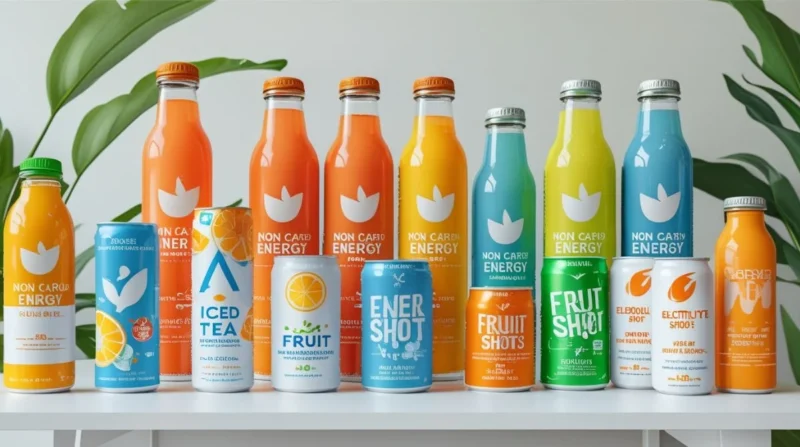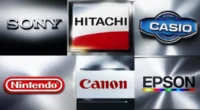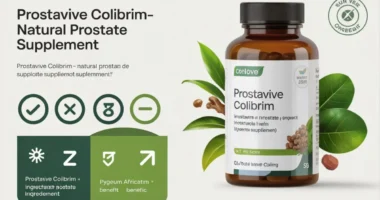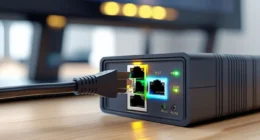Table of Contents
- What Are Non-Carbonated Energy Drinks?
- Why Are They Becoming So Popular?
- How Do Non-Carbonated Energy Drinks Work?
- Benefits of Non-Carbonated Energy Drinks
- Possible Risks and Side Effects
- Who Should Be Cautious?
- Popular Types of Non-Carbonated Energy Drinks
- How to Use Non-Carbonated Energy Drinks Wisely?
- Natural Alternatives to Energy Drinks
- Conclusion
In today’s fast-paced world, people are constantly looking for ways to stay energized, focused, and alert. While carbonated energy drinks have been popular for years, not everyone enjoys the fizzy, bloated feeling they bring. That’s where non-carbonated energy drinks come in. They offer the same energy boost but in a smoother, still liquid form. Let’s discuss what they are, why people love them, their benefits, risks, and how to use them wisely.
What Are Non-Carbonated Energy Drinks?
Non-carbonated energy drinks are beverages designed to boost your energy levels, enhance mental focus, and reduce fatigue, but without the bubbly sensation of carbonated drinks. They usually come as ready-to-drink juices, teas, shots, or flavored water mixes. These drinks often contain ingredients like caffeine, vitamins, natural plant extracts, amino acids, and sometimes electrolytes.
People choose non-carbonated energy drinks for several reasons. Some dislike the fizzy feeling or bloating that comes with carbonation. Others want a quick energy boost in a form that feels more natural or easy to drink, especially during workouts or busy workdays.
Why Are They Becoming So Popular?
The demand for non carbonated energy drinks has increased because more people are becoming health-conscious. Many consumers associate carbonated drinks with bloating, digestive discomfort, or unnecessary sugars. With busy schedules, fitness routines, and the constant need for focus, having a convenient, non fizzy energy source appeals to a wide range of individuals.
Non carbonated options are now seen everywhere, from grocery stores to gyms. Whether you’re heading to work, studying for exams, or preparing for a tough workout, these drinks offer a simple, quick solution to stay energized without the bubbles.
How Do Non-Carbonated Energy Drinks Work?
The main ingredient responsible for boosting energy in these drinks is usually caffeine. Caffeine is a natural stimulant that affects your central nervous system, making you feel more awake, alert, and focused. Alongside caffeine, many non-carbonated energy drinks contain vitamins like B-complex, amino acids like taurine, and herbal extracts such as ginseng or guarana. Some drinks also include electrolytes to help with hydration, especially during physical activity.
After drinking, most people feel more awake and mentally sharp within 15 to 30 minutes. The effects can last for a few hours, depending on the amount of caffeine and your body’s sensitivity to it.
Benefits of Non-Carbonated Energy Drinks
Here are some of the main advantages of choosing non-carbonated energy drinks:
Smooth and Easy to Drink
Without bubbles, these drinks are gentler on your stomach and can be consumed quickly without the bloated feeling often caused by fizzy beverages.
Boosts Mental Focus
The caffeine and other stimulating ingredients can help improve alertness, memory, and concentration, making them ideal for long workdays, studying, or early mornings.
Enhances Physical Performance
Many athletes and fitness enthusiasts use non-carbonated energy drinks before workouts to reduce fatigue and improve endurance, especially when they contain ingredients like taurine or electrolytes.
Convenient for On-the-Go
These drinks come in portable bottles, cans, or small energy shots, making them easy to carry and consume anywhere, anytime.
Often Lower in Sugar
Many non-carbonated options offer sugar-free or low-sugar versions, which can be a healthier choice compared to traditional sugary energy drinks.
![]()
Possible Risks and Side Effects
While non-carbonated energy drinks can be useful, it’s important to be aware of potential downsides:
Caffeine Overload
Too much caffeine can lead to jitteriness, rapid heartbeat, headaches, or even more serious health issues if consumed excessively. Always check the caffeine content before drinking and stay within safe daily limits.
Sleep Disruption
Drinking energy drinks too late in the day can affect your sleep, leading to insomnia or poor-quality rest. It’s best to consume them earlier in the day if possible.
Sugar and Artificial Sweeteners
Even though many options are low in sugar, some still contain added sugars or artificial sweeteners, which may not be suitable for everyone. Always read the label if you’re watching your sugar intake.
Dehydration
Caffeine can have a diuretic effect, causing increased urination. This means it’s essential to drink enough water alongside your energy drinks, especially during exercise.
Dependency Risk
Relying too heavily on energy drinks for daily functioning can lead to caffeine dependency. You may find it harder to stay energized without them over time.
Who Should Be Cautious?
Not everyone should consume non-carbonated energy drinks. Here are the groups who should be careful:
- Teenagers and Children: Their bodies are more sensitive to caffeine.
- Pregnant or Breastfeeding Women: High caffeine intake is generally discouraged during this period.
- People with Heart Conditions or High Blood Pressure: Caffeine can affect heart rate and blood pressure.
- Those with Anxiety or Sleep Disorders: Stimulants may worsen symptoms.
If you fall into any of these categories, it’s best to consult a healthcare professional before consuming energy drinks.
Popular Types of Non-Carbonated Energy Drinks
There are many different options on the market, depending on your needs:
Energy Shots
These are small, concentrated drinks that deliver a quick burst of energy, often without carbonation. They’re ideal for people who need an immediate pick-me-up.
Bottled Teas and Coffees
Cold teas and coffees infused with caffeine and vitamins provide a more natural energy boost without carbonation.
Electrolyte Blends
Some drinks combine energy-boosting ingredients with electrolytes, helping with hydration during intense workouts.
Fruit Juices with Added Energy
Certain juices are fortified with caffeine, vitamins, or herbal extracts to give you energy while keeping the drink refreshing and non-fizzy.
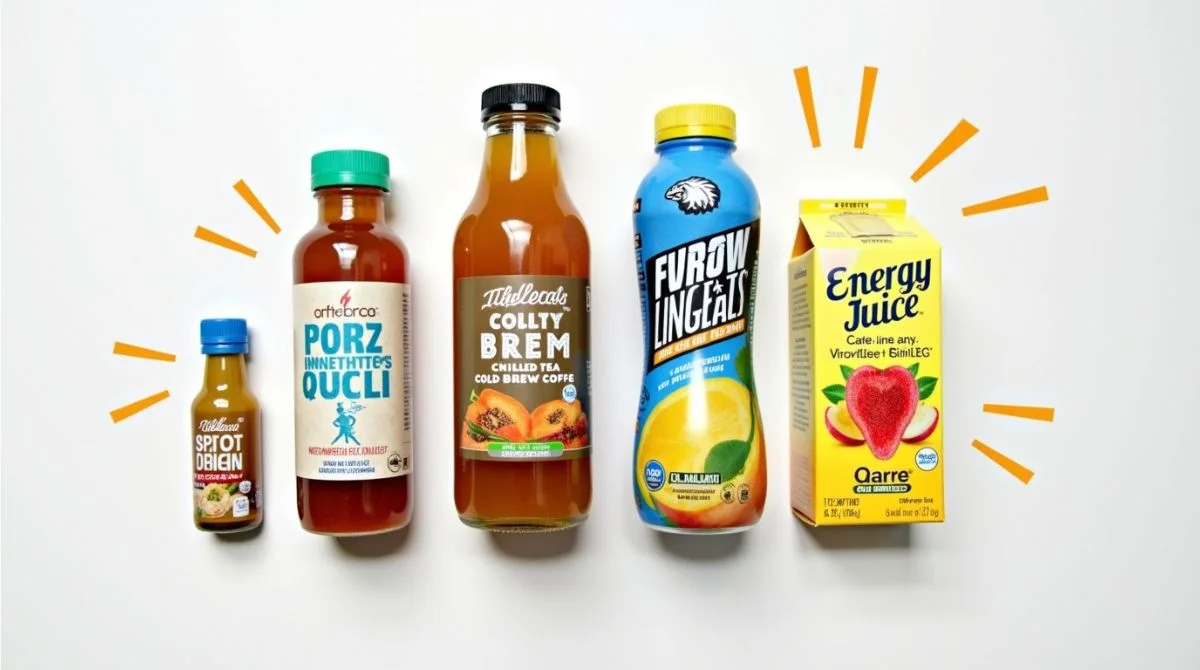
How to Use Non-Carbonated Energy Drinks Wisely?
Here are simple tips to enjoy these drinks safely:
- Check the caffeine content: Aim to stay under 400 mg of caffeine per day.
- Stay hydrated: Drink plenty of water alongside your energy drink.
- Time your intake: Avoid drinking energy drinks too close to bedtime.
- Choose healthier options: Look for low-sugar or sugar-free versions when possible.
- Use them occasionally: Reserve them for times when you truly need extra focus or energy, rather than making them a daily habit.
Natural Alternatives to Energy Drinks
If you want to reduce your reliance on energy drinks, here are other ways to boost energy naturally:
- Get enough sleep every night.
- Stay hydrated with water.
- Exercise regularly, even light activity, boosts energy levels.
- Eat balanced meals with healthy carbs, proteins, and fats.
- Take short breaks during work or study to refresh your mind.
Conclusion
Non-carbonated energy drinks are a convenient and effective way to stay alert, focused, and energized without the discomfort of carbonation. They’re easy to carry, simple to drink, and can be found in many different forms to suit your needs. However, like any energy product, they should be used with care. Be mindful of caffeine levels, avoid excessive sugar, and don’t rely on them daily.
